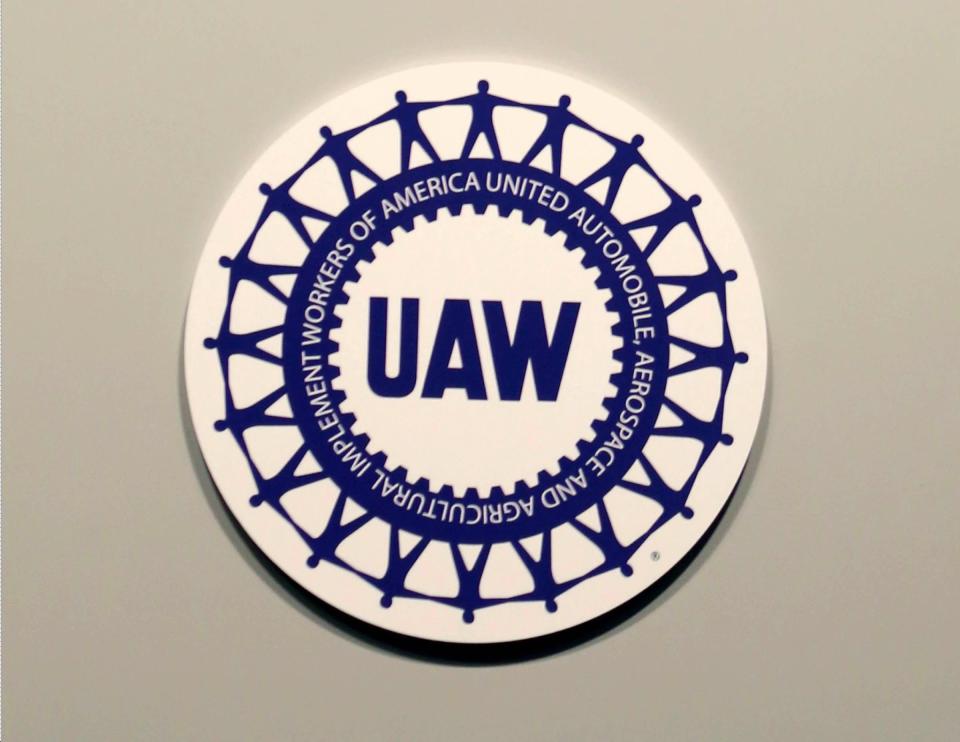UAW targets Hyundai over child labor allegations ahead of $730M rail car contract

The UAW, which is pushing to organize nonunion automakers in the United States, is highlighting allegations that South Korea’s Hyundai has benefited from child labor through its supplier base.
A Hyundai Motor Group subsidiary, Hyundai Rotem Co., is expected to be awarded a contract worth $730 million for 182 heavy rail cars during a Los Angeles Metro board meeting on Thursday, and the United Auto Workers union and advocacy group Jobs to Move America say they plan to be there to “demand accountability” in the form of a national community benefits ordinance. Jobs to Move America is a California-based organization that, according to information on its website, seeks to “transform public spending and corporate behavior” to advance a fair and prosperous economy for all.
“Given Hyundai's history of benefiting from the use of child labor, the coalition is demanding that Hyundai commit to a national community benefits agreement that would ensure improved working conditions, guard against child labor and create inclusive training and hiring programs for women, workers of color and formerly incarcerated individuals at all Hyundai-Kia facilities and their suppliers,” according to a news release.
Hyundai and its suppliers were the subject of a 2022 Reuters investigation titled, “Child workers found throughout Hyundai-Kia supply chain in Alabama.” The issue has continued to be problematic for the automaker, with the U.S. Labor Department obtaining a federal court order later that year to prevent one of the company’s suppliers “from employing 13-, 14- and 15-year-old workers illegally” and shipping goods produced in violation of federal child labor laws, according to a news release.
On Wednesday, LA Metro spokesman Dave Sotero provided a statement outlining the process that led to the selection of the Hyundai subsidiary and describing Metro's Manufacturing Careers Policy, which is designed to, among other things, maximize "co-benefits" from transit investments, including job creation and career development for those facing employment barriers.
"Metro engaged in a thorough and rigorous nearly year-long evaluation process that involved review of proposals, interviews, site visits and multiple reference checks before recommending Hyundai Rotem Co. for the manufacturing and delivery of those vehicles because it received the highest rating in accordance with approved evaluation criteria," the statement said, noting that Metro would conduct random inspections of contractor facilities.
When asked in a follow-up email if Metro has any concerns about the child labor allegations, Sotero replied that "we have discussed this concern with Hyundai Rotem. They have confirmed that they will comply (with) the Child Labor Provisions of the federal Fair Labor Standards Act (FLSA)."
A statement from Hyundai, provided Wednesday by spokesman Michael Stewart, said the automaker doesn't condone or tolerate violations of labor law.
"We took immediate action upon learning of the alleged underage labor law violations at independent suppliers of Hyundai Motor Manufacturing Alabama. At our request, the suppliers involved terminated their relationships with the third-party staffing agencies, even though those agencies had certified that they had screened and cleared individuals as being of legal age. In addition, we completed an investigation and a broader review of our U.S. supplier network so that we could be confident that there are no current underage labor issues at these suppliers," the statement said. "Following the investigation, Hyundai implemented new, more stringent workforce standards throughout our supply chain and introduced a compliance training program in collaboration with the U.S. Department of Labor for suppliers on a variety of employment subjects."
Hyundai is one of 13 automakers targeted by the UAW in its organizing campaign, and has faced unfair labor practice charges from the union, which accuses the automaker of illegal “union-busting.” The automaker, in response, said its workers “may choose to join a union or not as is their legal right.”
The union’s effort to organize nonunion automakers follows what is widely considered to be a successful and historic targeted strike strategy last year against Ford, General Motors and Stellantis, owner of Jeep, Ram, Chrysler, Dodge and Fiat. The new contracts with the Detroit Three included wage gains and a return of items lost in concessions during past bargaining, such as cost-of-living adjustments.
As for community benefits agreements, they are not a new idea. Detroit, for instance, has its own ordinance, which has been used to secure commitments from developers, to "address potential negative impacts of certain development projects," according to information on the city of Detroit's website.
The UAW release noted that "many of L.A. Metro’s existing vehicle suppliers already have community benefits agreements that have helped create high quality jobs and highly skilled workforces at companies like BYD, New Flyer and Kinkisharyo."
Contact Eric D. Lawrence: elawrence@freepress.com. Become a subscriber.
This article originally appeared on Detroit Free Press: UAW highlights child labor allegations against Hyundai suppliers